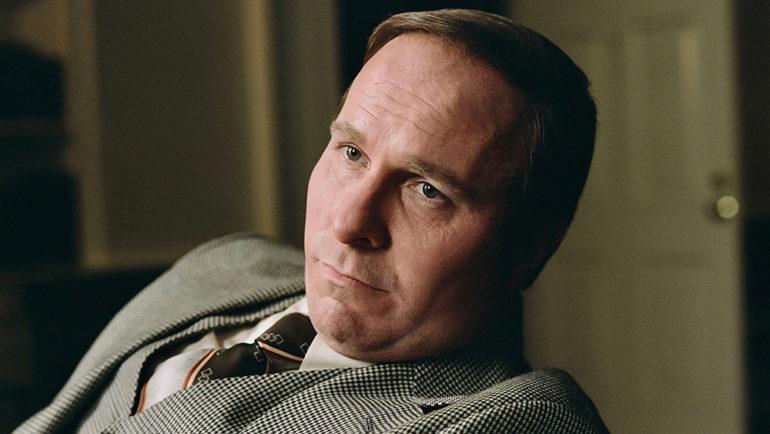New Media Residuals and Feature Films Contribute to Spike in Writers’ Pay
By Dave McNary
LOS ANGELES (Variety.com) – The outlook for members of the Writers Guild of America has brightened — even amid pervasive uncertainty in the entertainment industry.
According to the most recent report to members, earnings surged 2.8% to $1.41 billion in 2017, thanks mostly to gains in feature films and new-media residuals. Total covered earnings for West members topped $1.2 billion for the fourth consecutive year and the number of writers reporting earnings rose by 1.8% to 5,819.
Additionally, WGA East membership has been growing, thanks to unionization at digital newsrooms including Salon, the Intercept, Vox Media, Vice, HuffPost, MTV News and Gizmodo Media Group. The branch’s membership now tops 5,000.
In January, Slate’s 51-member editorial and podcast staff ratified its first collective bargaining agreement, which includes a number of protections for its workers. Later that month, the management of Refinery29, a feminist digital media company, voluntarily recognized the WGA East as the collective bargaining representative of the site’s 40-member editorial staff.
“We’re most proud of expanding opportunities in the digital news world,” says WGA East president Beau Willimon.
“We’re seeing real progress and it’s a sector where young people are getting their news,” Willimon adds. “We’re here to support and represent all kinds of writers.”
The guild’s annual bicoastal awards celebrations take place Feb. 17, in New York City for the WGA East and Beverly Hills for the WGA West. Bo Burnham (“Eighth Grade”), Alfonso Cuaron (“Roma”) and Adam McKay (“Vice”) are competing against the writers for “Green Book” (Nick Vallelonga & Brian Currie & Peter Farrelly) and “A Quiet Place” (Bryan Woods & Scott Beck and John Krasinski) for the original screenplay trophy, while “If Beale Street Could Talk” writer Barry Jenkins will vie against the teams behind “BlacKkKlansman” (Charlie Wachtel & David Rabinowitz and Kevin Willmott & Spike Lee), “Black Panther” (Ryan Coogler & Joe Robert Cole), “Can You Ever Forgive Me?” (Nicole Holofcener and Jeff Whitty) and “A Star Is Born” (Eric Roth and Bradley Cooper & Will Fetters).
On the TV side, “The Americans,” “Better Call Saul,” “The Crown,” “The Handmaid’s Tale” and “Succession” are competing for the WGA trophy in the drama series category, while “Atlanta,” “Barry,” “GLOW,” “The Good Place” and “The Marvelous Mrs. Maisel” are up for the guild’s comedy series crown.
Two years ago, the guild negotiated its contract down to the wire, reaching a deal an hour before the old contract expired. Key provisions included dealing with shorter TV seasons, residuals for streaming services, parental leave and the healthcare plan. During the past year, the WGA has also been pressuring Hollywood’s talent agents to revamp rules for agents. That effort came due to Hollywood’s two largest agencies — WME and CAA — moving aggressively into production. As Variety noted in a 2018 cover story, that creates the potential for conflicts of interest that arise when the same company represents the creative talent on one side of the table and is the employer on the other.
The guild notified the Assn. of Talent Agents last April that it wanted to renegotiate its 42-year-old franchise agreement and sent the ATA a 12-month notice to terminate the existing deal, known as the Artists’ Manager Basic Agreement. The terms and conditions of the current agreement will remain in effect through April 6, but will expire if a new agreement is not reached.
It’s uncertain what will happen if a new agreement isn’t reached at that point.
The WGA has also begun quiet preparations for the upcoming master contract negotiations, with the current deal expiring on May 1, 2020. WGA West president David A. Goodman notes that meetings with members are already under way.
Goodman and Willimon were both elected to two-year terms in September 2017, succeeding Howard Rodman and Michael Winship, respectively. They both say there’s no plan to revise the guild’s policy on awards eligibility, which disqualified the Oscar-nominated screenplay for “The Favourite” because it was not produced under a WGA contract.
Last year Oscar screenplay nominee “Three Billboards Outside Ebbing, Missouri” was similarly excluded, as was eventual original screenplay Oscar winner “Birdman” its year.
“There’s been no pressure from members to change our policy,” Willimon says. “We view the awards as a celebration of great writing and a way to bring attention to our guild, so we’re not going to change the rules.”
Goodman notes that the guild policy is derived partly from the WGA’s early days, in which it gained the ultimate authority to determine credit on screenplays or scripts written under a WGA contract. “The WGA Awards are a chance for us to celebrate work that done under our contract,” he adds.
(Pictured: Christian Bale in “Vice”)

